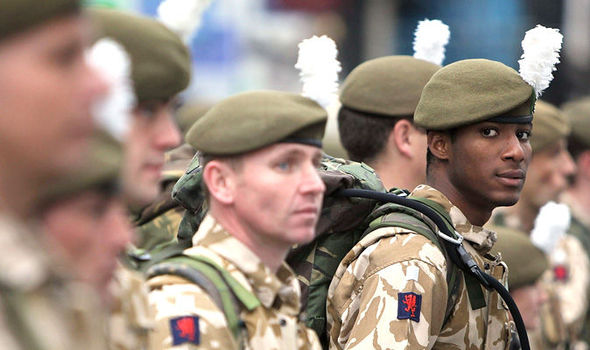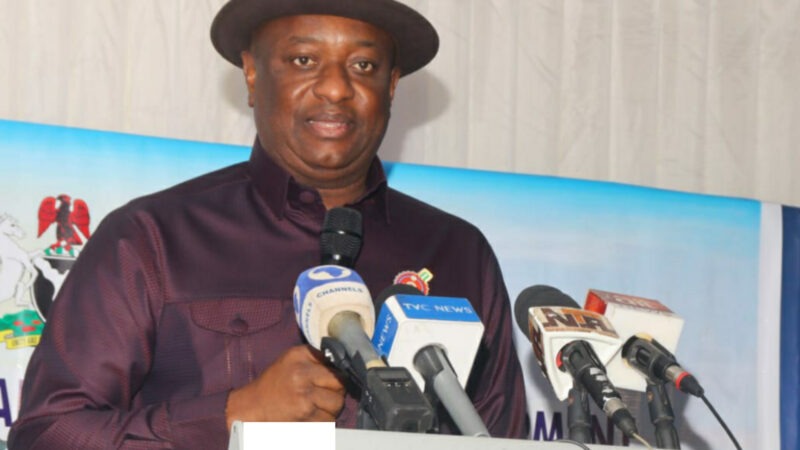British Army Opens Recruitment for Nigerians, other Commonwealth Citizens

The British Army has officially opened its doors to Commonwealth citizens, including Nigerians, offering a unique opportunity to join its ranks as of today, August 19, 2024.
This recruitment drive highlights the crucial contributions of Commonwealth soldiers throughout history and continues to honor their role in the British Army.
The application window, which remains open until August 26, 2024, specifically targets candidates for positions such as musicians, Royal Electrical and Mechanical Engineers, Royal Engineers Technicians and Tradesmen, and paratroopers.
Interested applicants must ensure that their submissions are linked to the Recruit Bounty Referral Scheme, with the exception of musicians, who must meet specific musical standards detailed on the Army Musicians page.
Medical Screening and Eligibility
A significant part of the recruitment process includes a thorough medical screening, with a focus on identifying Sickle Cell traits – a condition prevalent among populations from Commonwealth countries.
While the presence of the Sickle Cell Trait does not automatically disqualify candidates, those identified as high-risk will be required to undergo further diagnostic blood tests before being cleared for entry fitness tests.
This precautionary measure is aimed at safeguarding the health and well-being of all recruits.
To be eligible, soldiers must be at least 16 years old, with the application process commencing at 15 years and 7 months, and assessments beginning at 15 years and 9 months.
Those under 17 years and 6 months will first attend the Army Foundation College before proceeding to standard entry training. The upper age limit for enlistment is 36 years.
For those aspiring to be officers, candidates must fall between the ages of 18 and 29.
However, specialist roles, such as those for doctors, allow for higher age limits, with exceptions considered on a case-by-case basis.
Academic qualifications are also required, including 35 ALIS points from seven subjects, with a minimum grade of C/4 in English Language, Maths, and either Science or a foreign language, along with 72 UCAS Tariff points from three subjects.
Fitness and Lifestyle Expectations
All applicants are required to pass a series of fitness assessments, including the Multistage Fitness Test (Beep Test), Seated Ball Throw, and Mid Thigh Pull.
The Army provides guidance to help candidates achieve the necessary fitness levels and strongly advocates for a healthy lifestyle.
Recruits are advised to quit smoking and maintain a balanced diet to meet the Body Mass Index (BMI) requirements.
Regarding tattoos and piercings, the British Army has updated its guidelines, allowing hand and neck tattoos while prohibiting those on the head and face.
Offensive or obscene tattoos are strictly forbidden, and piercings that significantly alter one’s appearance, such as large flesh tunnels, may result in disqualification. All jewelry must be removed during physical activities.
Criminal Convictions and Army Cadet Force
The Army maintains a rehabilitative approach towards criminal convictions, allowing applicants with ‘spent’ convictions to apply, provided all unspent convictions are disclosed. Any attempts to hide convictions could lead to prosecution later.
For younger individuals not yet eligible to join the Army, the Army Cadet Force presents an excellent opportunity to engage in military-themed activities, sports, and outdoor adventures, helping them develop valuable survival skills and earn qualifications such as the Duke of Edinburgh’s Award.
Application Process and Timeline
Candidates must submit their applications strictly within the window from August 19 to August 26, 2024.
Those who pass the initial screening will be required to travel to the UK for further assessments scheduled for October and November 2024.
Successful recruits will then begin basic training between January and March 2025.
For more information and to apply, interested candidates are encouraged to visit the official British Army recruitment page.
This recruitment phase is one of the many ways the UK has shown its commitment to diversity, underscoring the essential role that Commonwealth citizens play in its ranks.







